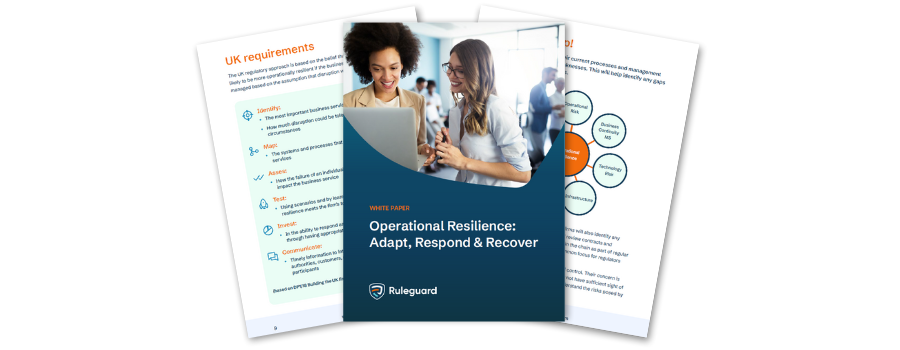Author: Priscilla Gaudoin - Head of Risk & Compliance - First published in October 2021
Topics: Master Trust, Pensions, Oversight, Third Party Oversight
Regions and Regulators: UK, The Pension Regulator (TRP)
%2024%20(1).png?width=150&height=161&name=Recognised%20CPD%20Badge%20(transparent)%2024%20(1).png)
Under the legislation, firms had to identify whether their pension scheme fell within the definition. Where this was the case, they then needed to seek authorisation from The Pension Regulator. The alternatives being to windup the scheme or face a penalty for operating illegally.
A master trust is an occupational pension scheme that:
- provides money purchase benefits
- is used, or intended to be used, by two or more employers
- is not used, or intended to be used, only by employers which are connected with each other
- is not a public service pension scheme
Cluster Schemes would also fall within the definition of a master trust. This is where a group of schemes, none of which are master trusts, provide money purchase benefits, and where each scheme in the group is under 'common control' with other schemes in the group.
- People
- Systems and processes
- Continuity plans
- Financial support
Supervision:
Supervision falls within the remit of The Pensions Regulator (TPR), who provide guidance to the master trusts. Not surprisingly, the level of supervision is determined by risks posed by a master trust. This assessment is based on a few factors including:
- the current and anticipated risks of the master trust, including the scale and complexity of the master trust
- information gathered during authorisation, supervision and any enforcement activity, the master trust’s track record in meeting their obligations, as well as member and employer experience
- the level of openness, honesty and proactivity demonstrated by the master trust
- industry and market developments, including changes in legislation and product innovation
TPR monitors the risks and issues associated with master trusts. This includes understanding the likelihood and impact these risks and issues would have on the wider market.
Demonstrating oversight:
Those responsible for running the master trust must have appropriate systems and controls in place. Management need to have appropriate evidence in place to demonstrate that risks posed are understood and managed. This requires ongoing monitoring and collation of data to demonstrate risk management. Given the nature of the master trust, collating data from a number of schemes needs to be managed efficiently and securely.
Firms need to consider the evidence to demonstrate control and rationale for key decisions. For example, this may include:
- Minutes from management meetings
- Reports with timely, accurate and relevant data provided to management
- Current organisation structure demonstrating clear reporting lines and escalation points
- Documented policies and procedure
- Reporting from control functions, e.g. compliance, risk management and internal audit
- Feedback from members and employer experience, such as survey or volume of complaints
Where it gathers information from various sources, accuracy, consistency and timeliness of data is a necessity. This helps to provide management with a complete and accurate picture. In turn this enables early identification of any issues and a speedy response to resolve issues, if required.
If you’d like to learn more about our Supplier Oversight Solutions or Pensions Compliance Software, please contact us for further information on: Tel: 0800 408 3845 or hello@ruleguard.com.
White Papers, Webinars, Blogs and more...
Request a complimentary copy of our White Paper on Best Practice in Third Party Risk Management click here.
Ruleguard hosts regular events on various regulatory topics. You can watch on-demand at your convenience, our series of webinars here.
Feel free to browse through our related blogs and infographics.

Become the trusted name in pensions
Audit management

.png?width=300&height=175&name=webinar%20featured%20image%20April%2025%20-%20How%20can%20firms%20improve%20compliance%20monitoring%20v1%20large%20(5).png)



.png?width=300&height=175&name=webinar%20featured%20image%20April%2025%20-%20Avoid%20the%20pitfalls%20proactive%20compliance%20monitoring%20v1%20large%20(1).png)




